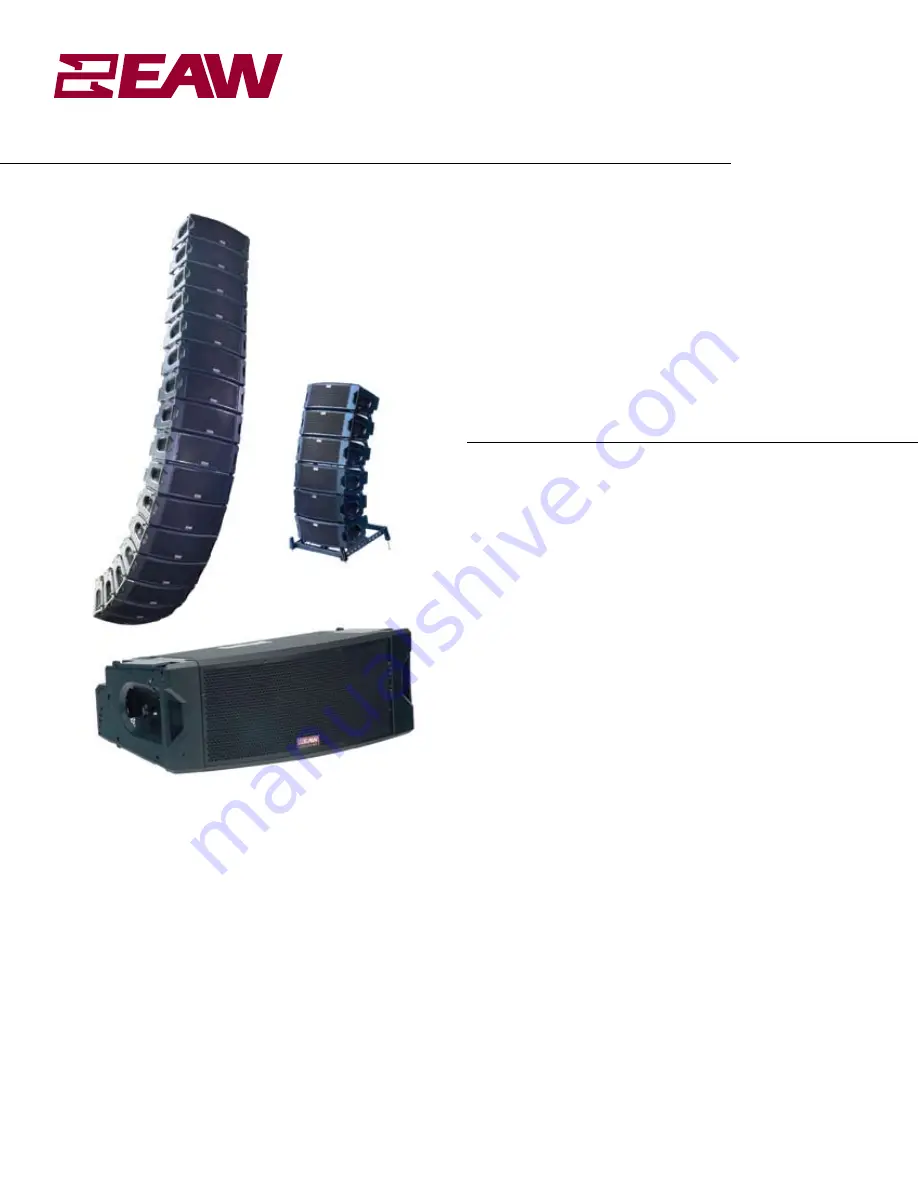
Is it really possible to pack 10 pounds of stuff into a 5-pound
bag? Further, can all of that “stuff” be painstakingly formed
into a cohesive unit capable of meeting critical challenges and
professional expectations?
EAW set out to answer these questions in the affirmative –
and more – with the new NTL720, an extremely compact,
self-powered line array loudspeaker system. The result is a
package that integrates fresh and genuinely exciting design
developments with a lion’s share of the most significant
technological advances that have been pioneered over the past
three decades.
Though so small (9.4 x 24 x 14.3 inches) and light in weight (less
than 50 pounds even with onboard tri-amplification) that we’ve
nicknamed it the “baby” line array module (BLAM for short), the
NTL720 is outfitted with a true three-way design that delivers
full-sized performance. From the outset, EAW committed that
its new baby would provide maximized vocal clarity via a
correctly executed three-way design with superior mid-range
performance – regardless of the miniscule footprint.
From there, the development team defined a long, detailed list
of other absolute “musts” to be accomplished for the NTL720 to
be worthy of exceeding requirements in virtually every medium-
format live and installed sound application. Every item on that
list has a big check mark next to it, and as noted, all of these
individual technologies are united as a seamless system easily
optimized under a user-friendly software interface.
A LOOK INSIDE
Let’s start with a look at the horn and driver components and
technologies of the NTL720 before moving along to other crucial
aspects. When the (stainless steel) grille is removed from the
front of the cabinet, the first thing that stands out is that the
entire front face of the enclosure is filled by a full-sized mid/high
horn providing 110-degree (horizontal) by 12-degree (vertical)
dispersion. The extreme size of this horn – an approach first
applied to our lauded KF730 and 760 line arrays and KF750
concert systems – has proven to insure broadband pattern
control, particularly in the entire MF/HF pass-band.
High frequencies are produced by six 1-inch dome tweeters,
configured in two vertical columns (each with three tweeters)
mounted on a manifold that feeds a single slot in the center of
the horn. This is highly effective in controlling vertical dispersion,
and with equivalent output of a 1-inch-exit, 44-millimeter voice
coil compression driver. The HF section serves the 1.5 kHz to 21
kHz frequency range.
Flanking the HF section, dual 6-inch cone woofers handle the MF
range, also loading on to the large horn. A primary design goal
was to minimize the space between the MF and HF components
in order to enhance coherency and improve overall off-axis
response. Further, a symmetric layout of the MF drivers (placed
on both sides of HF) would promote a symmetric horizontal off-
axis response.
Openings needed to be incorporated in the horn for these
MF drivers. The easiest approach would have been to provide
openings the same size as the MF cones, but this creates a large
void in the HF horn wall, causing HF energy to “escape” into this
void, reflect off of the MF cone, and arrive later in time than the
direct energy.
A slot in the horn was another possible approach, reducing the
void in the horn and somewhat minimizing interference to the
HF while also decreasing the distance between the acoustic
centers of the MF drivers. Yet a large percentage of the horn wall
NTL720 Line Array System
Integrating multiple EAW technologies in a miniscule package






